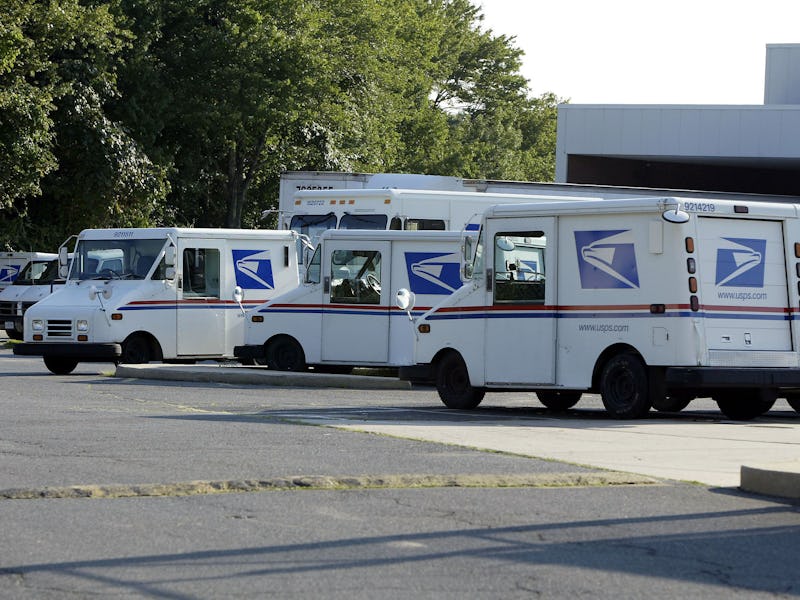Trump Says Postal Service Should Charge Amazon More: Here's Why He's Wrong
USPS has its problems, but Amazon isn't one of them.

This is going to come as a bit of a shock, but Donald Trump has gone online to voice his opinions about something.
The president took to Twitter Friday to fire an opening salvo at Amazon and the United States Postal Service, claiming the reason the post office loses so much money is that the retail giant gets too good of a deal on package delivery. And as we all know, we’re dealing with President Deals himself.
Let’s cut to the chase: Trump is wrong about this. As is frequently the case, he’s sort of right about a couple details — USPS does lose billions of dollars each year, and at least one analysis has suggested Amazon enjoys a discount from the postal service it wouldn’t from other carriers — but don’t let those distract from the essential wrongness of his claim.
Before going any further, let’s see exactly what Trump had to say, as it can be hard to follow the full chain of illogic otherwise.
“Why is the United States Post Office, which is losing many billions of dollars a year, while charging Amazon and others so little to deliver their packages, making Amazon richer and the Post Office dumber and poorer?” Trump asked in his inimitable style. “Should be charging MUCH MORE!”
The first claim here is that USPS loses billions of dollars per year. The postal service itself wouldn’t dispute that claim, but there’s a very specific, very obvious reason for that, and Amazon has nothing to do with it. Here’s the opening to USPS’s release of its financials for fiscal year 2016.
After accounting for a $5.8 billion retiree health benefit prefunding obligation, the U.S. Postal Service posted a net loss of approximately $5.6 billion for fiscal year 2016 (October 1, 2015 - September 30, 2016), as compared to a $5.1 billion net loss for the year ended September 30, 2015, Excluding this prefunding obligation, the Postal Service would have recorded net income of approximately $200 million in 2016.
The billions the USPS “loses” are all tied up in retirement benefits that have absolutely nothing to do with day-to-day operations. The Postal Service’s 2017 statement is a little less clear on this point, and it appears that figure was a bit smaller this year, but we’re still talking about billions in retirement commitments.
For Amazon to make up that gap, it would have to be getting such a good deal that USPS is losing out on more than $5 billion in potential revenues from the retail giant’s shipping practices.
We can do some rough math on this. A 2013 study estimated Amazon delivered about 608 million packages that year, with USPS handling 35 percent of them, or 213 million of them. Both the number of packages sent and the percentage handled by USPS have likely grown in the years since — let’s go high and say 300 million, just to have a round number to work with. Again, rough math.
An article published this July in The Wall Street Journal argued that the formula USPS uses to calculate package delivery costs is incorrect because it assumes that boxes make up about 5.5 percent of total shipping, when it’s now closer to 25 percent. The upshot, according to this analysis — and as Fortune argued, there are reasons to be skeptical — is that Amazon is pay $1.46 less per box than it should.
If that’s the case, and if Amazon is sending about 300 million packages per year using USPS, that means the Postal Service loses out on… $438 million each year. That’s a ton of money, but that’s also very obviously not a billion dollars, or even halfway there.
None of this means that the Postal Service couldn’t stand to charge Amazon and other major retailers more to use their services, or that USPS doesn’t need some help working out what to do with its massive retirement benefit obligations. Of course, this doesn’t mean the answer would be to cut them — honestly, it’s probably for the best Trump decided to go after Amazon, wrong as his claim might be, rather than people’s retirement benefits.
But Amazon isn’t the main problem here, and USPS isn’t like any other business, all of which makes Trump’s “analysis” even more wrongheaded.